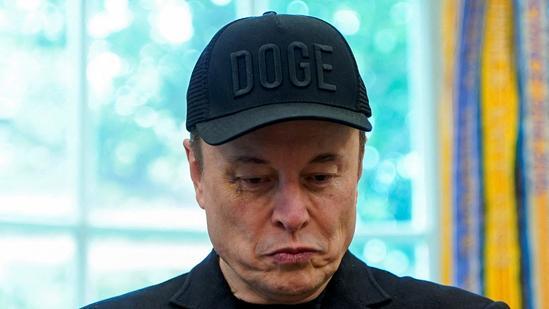
Elon Musk Responds to NYT’s Report on His Alleged Drug Abuse While Advising Trump
Recently, a report by The New York Times claimed that Elon Musk, the CEO of SpaceX and Tesla, had used ketamine so frequently during his time as an advisor to former US President Donald Trump that it had affected his bladder. The report alleged that Musk’s frequent use of the drug had become a concern for Trump’s team, and that he was using it to cope with the stress of his responsibilities.
In response to the report, Musk took to social media to deny the allegations, calling the New York Times “a publication that got a Pulitzer Prize for false reporting on the Russia-gate” and saying “Let’s move on.”
Musk’s response is not surprising, given the history of controversy surrounding The New York Times and its reporting on Russia-gate. In 2018, the paper was awarded the Pulitzer Prize for its coverage of the scandal, which alleged that Russia had interfered in the 2016 US presidential election. However, the story was later discredited, and many critics accused the paper of perpetuating a conspiracy theory.
Despite Musk’s denial, the report has sparked concerns about his ability to perform his duties as a high-ranking official in the Trump administration. As a close advisor to the President, Musk was involved in many high-level meetings and decision-making processes, and his alleged use of ketamine could have potentially impacted his judgment and ability to make sound decisions.
The report also raises questions about Musk’s health and well-being during his time in the Oval Office. As a high-stress position, the role of advisor to the President can be mentally and physically demanding, and it is not unusual for individuals in this role to seek out ways to cope with the pressure. However, the use of illegal substances is never an acceptable solution, and it is concerning that Musk may have turned to ketamine as a way to manage his stress.
It is also worth noting that the report does not provide any evidence to support the allegations against Musk. The story is based on anonymous sources and does not include any concrete proof of Musk’s alleged drug use. This lack of evidence raises questions about the credibility of the report and the motivations of those who are making the allegations.
Despite these concerns, the report has sparked a wider conversation about the use of drugs in high-level positions and the importance of addressing mental health in the workplace. It is crucial that we prioritize the well-being of our leaders and ensure that they have access to the resources and support they need to perform their duties effectively.
In conclusion, while Musk’s response to the report is not surprising, it is concerning that he is downplaying the allegations and refusing to engage with the facts. As a high-ranking official, it is essential that he takes his responsibilities seriously and provides transparency and accountability. The public deserves to know the truth about his alleged drug use and its potential impact on his performance as an advisor to the President.






